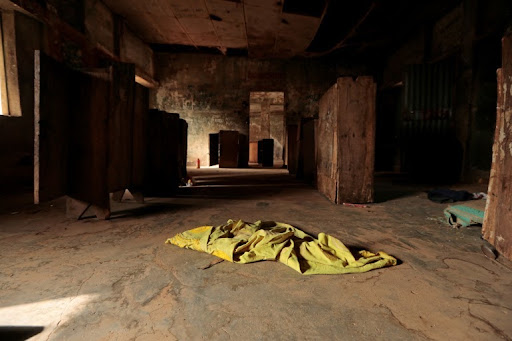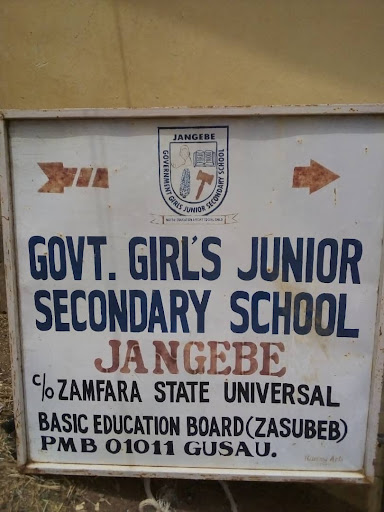‘Banditry’: Economic Boom For Terrorists, Disaster For Nigeria’s Education Sector

Abductions in North-central and Northwest Nigeria have become more rampant as terror gangs called ‘bandits’ continue to make millions off citizens while crippling the education system.
This kidnapping trend has since increased after Boko Haram gained global attention in 2014 with the abduction of almost 300 Chibok schoolgirls in Borno State, Northeast Nigeria. Although the Nigerian government had insisted that ransom was not paid for the release of abducted victims, several reports stated the government paid a ransom to secure some of the Chibok schoolgirls in 2017 and the Dapchi schoolgirls in 2018.
A report by SBM Intelligence says a total of 2,371 people have been kidnapped and more than 58 killed in attempts since the beginning of 2021. It also revealed that the sum of $18m has been paid as ransom to kidnappers between June 2011 and may 2020, mostly by parents of victims and sometimes by government agencies.
An article by Infoguide Nigeria stated that the rate of conflict in Nigeria could be traced to abject poverty due to the worsening economic situation, lack of sufficient punishment for criminals imposed by the government on terrorists, corruption and fraud which has been rooted down in Nigeria before independence, and resources control.
A security expert and Executive Director of Lite Africa, Hon Joel Bisina, stated that the influx of Small Arms and Light Weapons (SALW) into the country has contributed immensely to Nigeria’s security crisis.
According to Bisina, this escalates conflict, undermines peace agreements, intensifies violence and impacts on crime, thereby impeding economic and social development including democracy and good governance.
Victims recount experiences, haunting memories
In an interview with some students among the 300 kidnapped victims of Government Girls Junior Secondary School, Jengebe in Zamfara State, they narrated how they were made to drink water from different rivers and forced to cook intermittently as they journeyed to different locations to evade vigilantes out to rescue them.*
Khadija Aliyu, Asiya Usman and Hauwa Aminu, JSS 2 students who were less than 12 years, told HumAngle that the bandits lured them by introducing themselves as vigilante officials and promised that nobody will hurt them but later requested for N10 million before they gave them their freedom.
“Since my release, I still don’t feel good. I’m not able to go back to school and I keep praying for everything to be better,” Hauwa Aminu said.
For Khadija Aliyu, the experience is forever a nightmare that she would live with. “If you go back to boarding school again we will come back to kidnap you and marry you off compulsorily”; Khadija recalls her captors as saying.
Although Khadija misses school, her parents still insist she cannot go back for fear of her safety. “The government is not doing very well,” Khadija said sadly.
Asiyu Usman, who is currently attending a day school in Zamfara said with a smile that she prefers her new school and enjoys it. But her next words take away the smile: “We had to move from one place to another, they told us that if any vigilantes come, they will kill us.”
Concerning the government’s claim that ransom was not paid to the terrorists, the girls gave divergent views. “I don’t know if ransom was paid, but they said they were given after they called us bastards and told us they were taking us home, that the government likes us,” Asiya narrated.
Emmanuel Benson and Jennifer Peter are two among the 39 students that were kidnapped on Sunday, 11 March 2021 from the Federal College of Forestry Mechanisation, Afaka in Kaduna, Northwest Nigeria.
Emmanuel Benson, 24, who narrated his ordeal in captivity said, “Everything has not been the same after the incident. I’m still trying to balance my life.” He pointed out that although he wants to go back to school and finish his course, his parents would not let him. “Instead, they are making plans for me to further my education abroad,” Benson added.
After about 50 days in captivity, a huge ransom was paid for their release by their parents, Emmanuel disclosed. Adding that since March, when they were released, no government official or security agency has paid any visit to his home. Also, no compensation was made for all medical bills footed by his parents.
Jennifer Peter, a final year Horticulture student from the same school said that the Northwest has become the bedrock of kidnapping and disclosed that after the case of abduction in her school, kidnapping became worse.
“Anytime I close my eyes, I still see the incidents that took place like it happened yesterday and it has made sleeping difficult for me,” she said and added that she still wants to go back to school but not in Afaka. She further disclosed that the school management has promised to change the school’s location to another campus because Afaka is not safe anymore.
Government is not doing enough
Since the rate of kidnapping increased, the government and security agencies have been criticised for not tackling the situation. Victim’s like Emmanuel believe that “nobody should go through that ordeal and the government has the power to stop this but they are not doing any work.”
Jennifer, on the other hand, alleged that the Kaduna state government is playing politics with people’s lives. According to her, “If he cannot negotiate with bandits, he should at least provide security for us. Kaduna is not safe anymore.”
*Interviews with the Jengebe schoolgirls were conducted with consent from their parents.
Support for this report was provided by the Premium Times Centre for Investigative Journalism (PTCIJ).
Support Our Journalism
There are millions of ordinary people affected by conflict in Africa whose stories are missing in the mainstream media. HumAngle is determined to tell those challenging and under-reported stories, hoping that the people impacted by these conflicts will find the safety and security they deserve.
To ensure that we continue to provide public service coverage, we have a small favour to ask you. We want you to be part of our journalistic endeavour by contributing a token to us.
Your donation will further promote a robust, free, and independent media.
Donate HereStay Closer To The Stories That Matter






thanks for sharing
Thanks for sharing